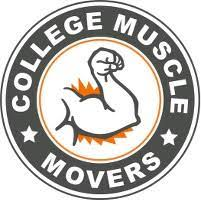Highly rated local moving companies for St. Paul to Boston moves
Organizing a move from St. Paul to Boston can be daunting, particularly when trying to identify a reliable mover that offers long-distance services. We’ve done the groundwork for you, evaluating 35 local movers in St. Paul known for their long-distance moving capabilities, assessing them on pricing, customer experiences, and reliability.
Here are the best local movers for long-distance moves from St. Paul to Boston.
- Matt’s Moving Company : 4.66 out of 5 stars
- Piepho Moving & Storage, Inc.: 4.62 out of 5 stars
- Metcalf Moving & Storage: 4.5 out of 5 stars
- The Move Crew: 4.5 out of 5 stars
- Daymakers Moving & Storage: 4.5 out of 5 stars
Company Info
State license #: 374236
Years in Business: 17
DOT #: 1704106
Services Offered
- Local moves
- Interstate moves
- Packing
- Unpacking
- Offices
- Pianos
- Crating
- Storage
- Pay by credit card
Company Info
State license #: 286311
Years in Business: 73
DOT #: 286311
Alternate Names: Rochester Transfer & Storage Company
Services Offered
- Local moves
- Interstate moves
- International moves
- Packing
- Unpacking
- Offices
- Pianos
- Hot Tubs
- Pool Tables
- Art
- Antiques
- Grandfather clocks
- Crating
- Crane vans
- Shipment tracking
- Full-valuation coverage
- Safes
- Pay by money order
- Pay by cash
- Pay by credit card
Company Info
Years in Business: 105
DOT #: 1127088
Services Offered
- Local moves
- Interstate moves
- International moves
- Packing
- Unpacking
- Offices
- Pianos
- Crating
- Full-valuation coverage
- Storage
- Pay by credit card
Company Info
State license #: 380620
Years in Business: 10
DOT #: 2552505
Services Offered
- Local moves
- Interstate moves
- Packing
- Unpacking
- Offices
- Pianos
- Crating
- Storage
- Pay by credit card
Company Info
Years in Business: 8
DOT #: 2593674
Services Offered
- Local moves
- Interstate moves
- Packing
- Unpacking
- Offices
- Pianos
- Pool Tables
- Art
- Antiques
- Crating
- Full-valuation coverage
- Storage
- Safes
- Pay by credit card
How much does it cost to move from St. Paul to Boston?
On average, moving companies in Minnesota charge about $209 per hour. Consider these typical rates for a full-service moving company, moving container, or rental truck:
| Move size | Moving company | Moving container | Rental truck |
|---|---|---|---|
| Studio / 1 bedroom | $1,150 – $4,579 | $920 – $2,213 | $831 – $1,529 |
| 2 – 3 bedrooms | $2,823 – $6,815 | $1,613 – $3,323 | $838 – $1,929 |
| 4+ bedrooms | $5,021 – $9,002 | $2,300 – $4,380 | $1,066 – $2,131 |
Cost to hire movers from St. Paul to Boston
When planning a move to Boston from St. Paul, for a studio or one-bedroom, you’ll likely pay between $1,150 and $4,579. If you have a two- or three-bedroom home, expect costs to fall somewhere between $2,823 and $6,815 for the same journey. Moving four or five bedrooms? Typical prices range from $5,021 to $9,002.
Cost of moving containers from St. Paul to Boston
When you’re heading from St. Paul to Boston, and you’re only moving a few items, you can expect to spend between $920 and $2,213. For a two- or three-bedroom place, prices usually fall between $1,613 and $3,323. If you’re packing up a large home with four or more bedrooms, the cost can range from $2,300 to $4,380. Want more details? Check out our complete PODS cost guide.
Explore the top budget-friendly moving container companies to make your move from Minnesota easier and more affordable.
Cost of moving truck rentals from St. Paul to Boston
A moving rental truck from St. Paul to Boston is generally the cheapest option, but it requires you to do all of the driving and labor.
Moving a studio or one-bedroom apartment in a rental truck will cost around $831 to $1,529. A two to three-bedroom move will cost $838 to $1,929, and moving a home with four or more bedrooms from St. Paul to Boston costs around $1,066 to $2,131.
These quotes include the estimated fuel cost.
Factors that affect moving costs from St. Paul to Boston
The cost of St. Paul movers will depend on:
- How much stuff you have: A one-bedroom move from St. Paul to Boston may only cost $2,308, whereas a full four-bedroom relocation can approach $8,303.
- The season you’re moving in: Movers charge more in summer, the busiest months in St. Paul.
- Which type of mover you use: Save with a truck rental ($831–$2,010), but expect more hassle than hiring pros.
What to know before moving from St. Paul to Boston
Expect a bump in monthly expenses after the move – Boston runs about 33% higher for singles and 163% higher for families than St. Paul.
Singles spend around $4,820 in St. Paul versus $3,633 in St. Paul; families pay $11,304 compared with $4,290.
Dig into the side-by-side details here:
| St. Paul | Boston | |
|---|---|---|
| Average 1 BR rent | $3,361 | |
| Average 3 BR rent | $5,973 | |
| Average home value | $278,221 | $739,121 |
| Average income (per capita) | $63,483 | $89,212 |
| Cost of living (single) | $3,633 | $4,820 |
| Cost of living (family of four) | $4,290 | $11,304 |
| Unemployment rate | 4.9% | 6.2% |
| Sales tax | 9.88% | 6.25% |
| State income tax | 9.85% | 9.0% |
- Rent is about 152% more expensive in Boston than in St. Paul. Make sure to include this increase in your monthly budget.
- Plan for a heftier mortgage payment since home prices are approximately 166% steeper in Boston compared to St. Paul.
- Here’s some fantastic news, the average income is approximately 41% greater in Boston than in St. Paul, offering more potential for savings or investments each month.
- Prepare for elevated costs in Boston, with the cost of living for a single person being 33% more than in St. Paul. This includes routine costs such as utilities, groceries, clothes, and transportation.
- When considering a family move to Boston, prepare for a potential rise in household expenses. The cost of living for a family here is 163% higher than in St. Paul.
- Boston has a higher unemployment rate than St. Paul by about 27%. This means that more people are out of work, so employers may have a larger pool of candidates to choose from, which can lead to a more competitive hiring process.
- Sales taxes are 37% cheaper in Boston compared to St. Paul. This could significantly slash costs for families or individuals with higher spending on taxable necessities.
- Income taxes are 9% less in Massachusetts compared to Minnesota, offering a relief on your paycheck, which can enhance your budgeting options.
Here’s the side-by-side view of common monthly bills and day-to-day expenses in St. Paul versus Boston:
| Living Expense | St. Paul | Boston |
|---|---|---|
| Basic utilities | $203.15 | |
| Cell phone plan | $57.53 | |
| Dozen eggs | $4.71 | |
| Loaf of bread | $4.07 | |
| Fast-food/casual eatery (one meal) | $25.00 | |
| Dinner for 2 (mid-range restaurant) | $135.00 | |
| Gym membership | $77.50 |
How life is different in St. Paul vs. Boston
| St. Paul | Boston | |
|---|---|---|
| Population | 303,176 | 675,647 |
| Transportation score | 8 | 9 |
| Walkability score | 60 | 98 |
| Bike friendliness score | 64 | 86 |
| Crime index | 50.86 | 39.88 |
| Safety index | 49.14 | 60.12 |
| Air quality | Good | Good |
- Boston’s population is about 123% greater than St. Paul.
- Boston’s public transportation score of 9 out of 10 is higher than St. Paul’s score of 8.
- Boston is more walkable than St. Paul with a score of 98 out of 100 vs St. Paul’s 60 out of 100.
- With a score of 86 out of 100, Boston is more bike-friendly than St. Paul, which has a score of 64 out of 100. The higher a city’s score, the more suited it is to safely accommodating cyclists.
- Boston’s crime rate is lower than St. Paul with a score of 39.88 compared to St. Paul’s 50.86. This means that Boston neighborhoods are safer than 39.88% of all U.S. neighborhoods, and St. Paul neighborhoods are safer than 50.86%.
- Boston is considered to be safer than St. Paul with a safety index of 60.12 vs St. Paul’s 49.14.
- Air quality in Boston is Good, and in St. Paul it’s Good.
Other things to consider for your St. Paul to Boston move
- HOA rules: Costs across St. Paul and Boston are largely aligned, so your monthly budget shouldn’t shift much after the move.
- Elevator reservation: If your building has an elevator you’ll want to check on how to reserve it for move day.
- Truck parking permits: Many cities require special permits for parking large moving trucks. Check in advance to see if one is needed for your move.
- State licensing: Moving companies in Massachusetts are required to obtain a license from the Massachusetts Department of Public Utilities – Transportation Oversight Division to provide local and intrastate moving services in Massachusetts movers must carry adequate cargo insurance and publicly file their tariffs required to list the services they provide and the cost for each. Ensure the company you choose is licensed to handle your move.
- State regulator: To confirm a moving company’s license in Massachusetts, visit the state’s public utilities commission.
- Moving Permits: Moving permits aren’t typically required in Massachusetts, but always confirm with local authorities to avoid surprises.
- Change of address: You can set an official move date on the form and this way all of your mail will get properly forwarded to Boston. Get started here.
- Moving company insurance: Each state has its own requirements for the level of insurance moving companies must carry. In Alabama and Massachusetts, Released Value Protection is a no-cost option provided by movers but offers minimal coverage at 60 cents per pound per article. If you seek full value coverage for your items, consider consulting with your moving company for alternative options or explore third-party insurance providers.
- Moving checklist: Let our moving checklist guide you through the process and help ensure nothing slips through the cracks.
Where to live in Boston
With your sights set on Athens of America, these are some of the most popular neighborhoods to consider in Boston.
Best neighborhoods for singles
- Allston-Brighton
- Back Bay-Beacon Hill
- East Boston
- Jamaica Plain
- South Boston
Best neighborhoods for families
- Charlestown
- East Boston
- Hyde Park
- Roslindale
- West Roxbury
Things to do in Boston
With your move to Massachusetts complete, you can dive right into experiencing Boston. From cultural attractions to outdoor adventures, you’ll never run out of things to do:
- Arts and culture: Boston is home to museums and cultural arts centers like the Museum of Fine Arts, Boston Tea Party Ships & Museum, John F. Kennedy Presidential Museum & Library, and Museum of Science.
- Outdoor recreation: The city’s Boston Public Garden, Boston Common, Arnold Arboretum, and Charles River Esplanade — among other spots — perfect for hiking, biking, or simply soaking up the outdoors.
- Sports: Experience the energy of a live game and back the home team at an Boston Red Sox (MLB)Boston Bruins (NHL)Boston Celtics (NBA)New England Patriots (NFL)New England Revolution (MLS) game.
FAQ
When is the best time to move from St. Paul to Boston?
If you’re flexible with timing, spring and fall are great seasons to move from St. Paul to Boston. You’ll dodge the heat, the crowds, and the higher moving costs typical of peak season in St. Paul.
When is the cheapest time to move from St. Paul to Boston?
Want to save on your move from St. Paul to Boston? Consider scheduling it in winter, when demand is lower and rates are often cheaper. Our moving discounts guide shows you how.
How long does a move from St. Paul to Boston take?
The 1,388-mile move from St. Paul, MN, to Boston, , takes three to eight days. Some St. Paul movers may offer expedited moving if you need it faster. If you need more time, ask your mover about storage options in Boston.
What kinds of discounts do St. Paul movers offer?
Many local moving companies provide ways to save, from ongoing deals to seasonal offers. In St. Paul, 3 movers provide AAA member discounts. 1 movers offer special pricing for military members. 2 movers extend discounts to senior citizens.
Check with each mover to confirm discount availability, eligibility requirements, and how much you can save.
Need help moving a piano or antiques in St. Paul?
These delicate items require movers with specialized training. Currently, 28 movers in St. Paul provide piano moving services. 13 can transport antiques with care. Statewide, there are 42 piano movers and 17 antique movers, with nationwide counts at 2,299 and 1,464.
Demand for these services can be high, so schedule your specialty move as far ahead as possible.
Helpful moving resources
St. Paul moving services
Popular Minnesota routes
- Minnesota to Massachusetts car shippers
- Minnesota to California movers
- Minnesota to Florida movers
- Minnesota to Georgia movers
- Minnesota to Illinois movers
- Minnesota to Michigan movers
- Minnesota to New York movers
- Minnesota to North Carolina movers
- Minnesota to Ohio movers
- Minnesota to Pennsylvania movers
- Minnesota to Texas movers
- See All Moving Routes
Not what you were looking for?
Check out other categories that can help you find the information you need!



























